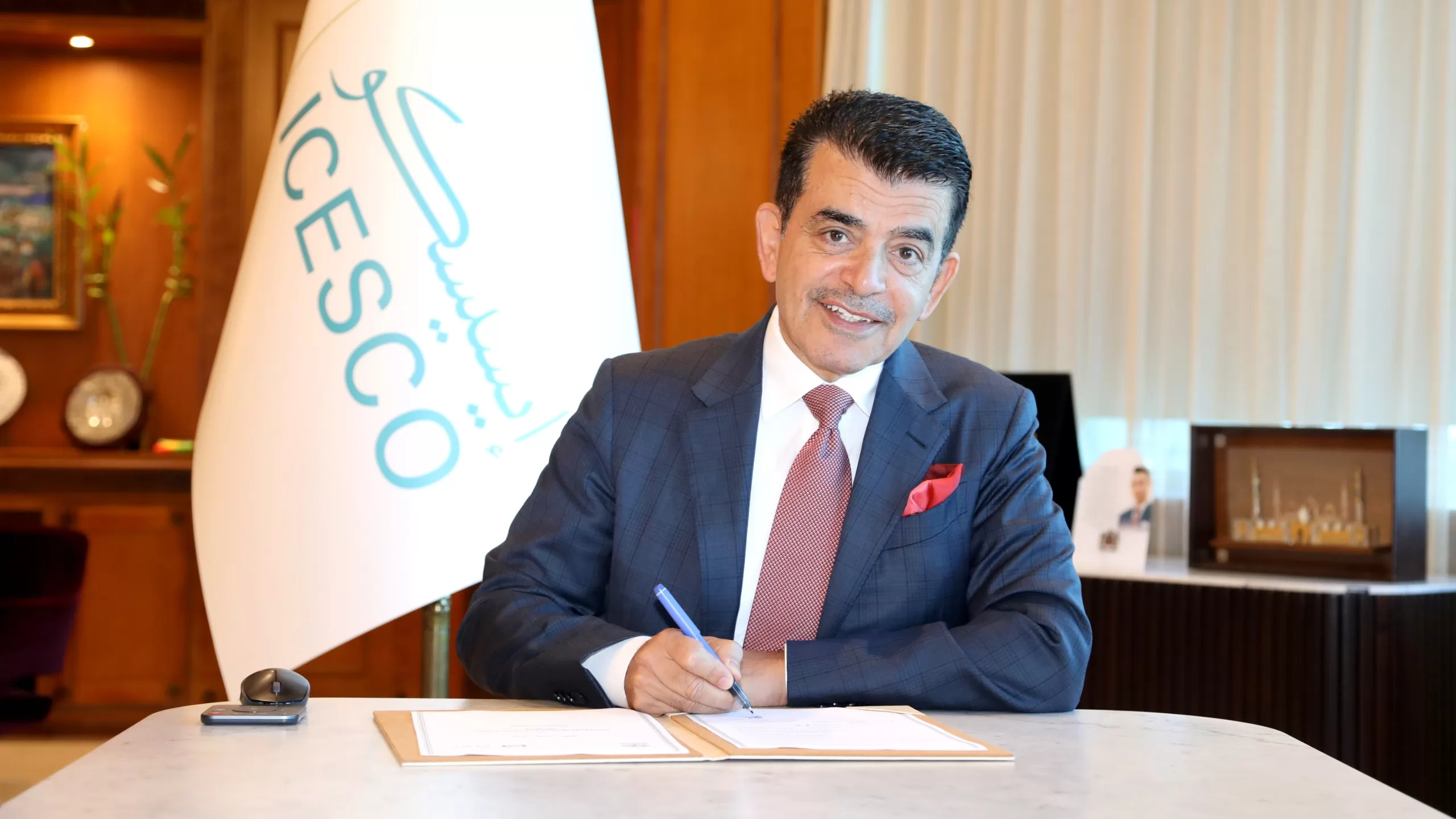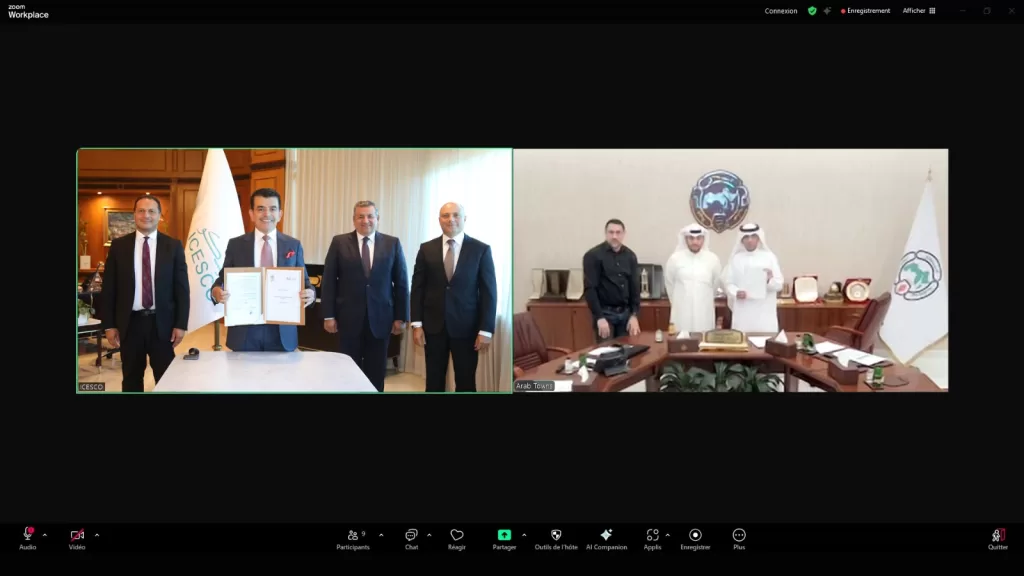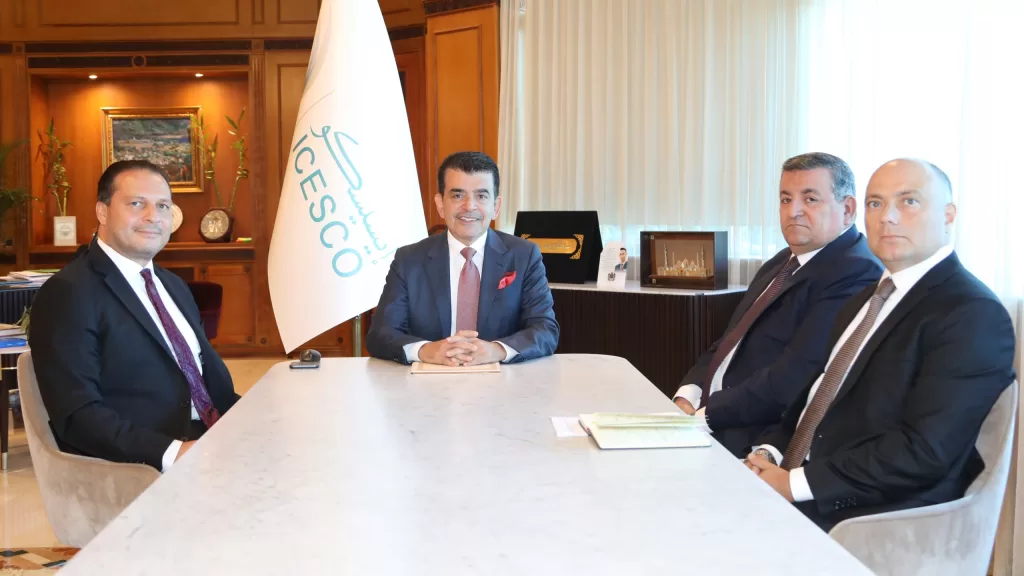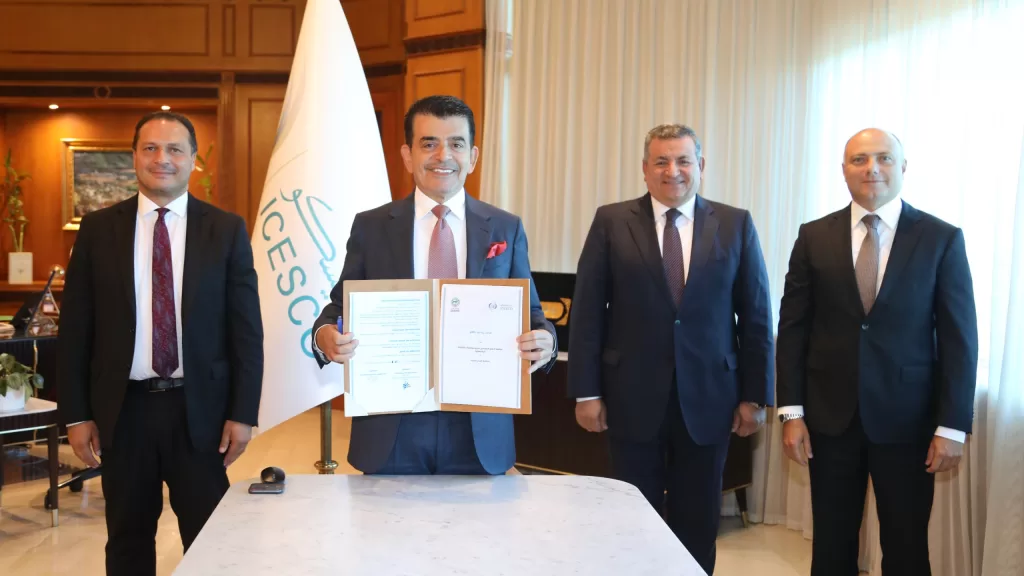
ICESCO, Arab Towns Organization Sign MoU on Shaping Future Cities

25 June 2025
The Islamic World Educational, Scientific and Cultural Organization (ICESCO) and the Arab Towns Organization (ATO) signed a memorandum of understanding on Wednesday, 25 June 2025, to cooperate in areas of shared interest, primarily artificial intelligence and strategic foresight for future cities.
The agreement was signed via videoconference by Dr. Salim M. AlMalik, ICESCO Director-General, and Eng. Abdulrahman Hisham Al-Asfour, Secretary-General of the Arab Towns Organization, in the presence of senior officials from both organizations.

Speaking during the signing ceremony, Dr. AlMalik said that cooperation with the Arab Towns Organization is an important step toward developing urban policies focused on heritage protection, building resilient and smart cities, and enhancing community partnerships. Dr. AlMalik noted that the partnership reflects a shared commitment to more sustainable and human-centered cities.
Dr. AlMalik reviewed data and insights on global urban growth, stressing the need to build sustainable smart cities that prioritize quality of life and human well-being. Moreover, he highlighted ICESCO’s ongoing initiatives to protect cultural and urban heritage and build local capacities in artificial intelligence and urban planning.

For his part, Eng. Abdulrahman Al Asfour welcomed the signing of the MoU, describing it as a sign of both sides’ commitment to cooperation in support of cities and communities in the Arab and Islamic worlds. He noted that this partnership is grounded in ICESCO’s strong international reputation and leading role in education, science, and culture, and that it will help create new opportunities for impactful initiatives that enhance cities’ resilience to present and future challenges.
Founded on 15 March 1967 and headquartered in Kuwait, ATO is a regional, non-governmental, and independent body that specializes in the affairs of cities and municipalities in the Arab world. It seeks to design future cities with contemporary architecture while preserving Arab-Islamic identity and heritage, and works to strengthen the role of modern cities as attractive places to live and work.




